Several of Plural’s advanced features can save you hours of time spent on manual tasks, so that you can spend more time on strategy and planning (and spend less time working overall!)
Digging Into Plural’s Advanced Features
Save Your Frequently Used Searches
Plural’s Saved Search feature allows you to save your frequently used searches. You’ll receive email alerts as new updates are available for your search criteria.
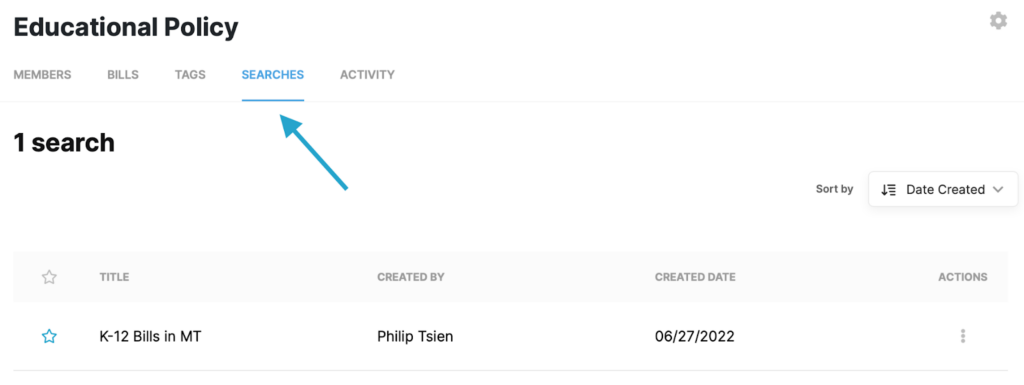
All saved searches are dynamic, so they’ll get updated as new legislative data becomes available. For example, as legislatures introduce new bills that match your saved search criteria, those bills will appear as results.
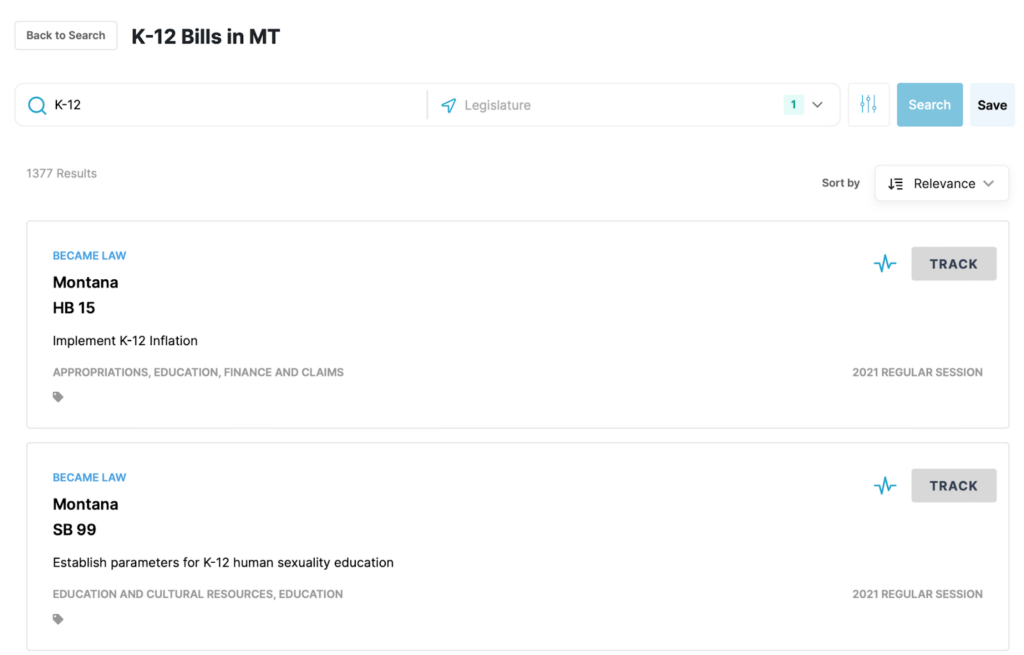
View Critical Information for Many Bills in One List
In Plural, you can choose to display your list of bill search results and tracked bills in “Table View” or “Cards View.”
Cards View lists key bill information, including the bill’s title, ID, session and committee. Table View adds to this information with bill status and latest action, in an easily skimmable format.
Table View saves you from having to click into individual bill pages one by one to get the most critical details about each bill.
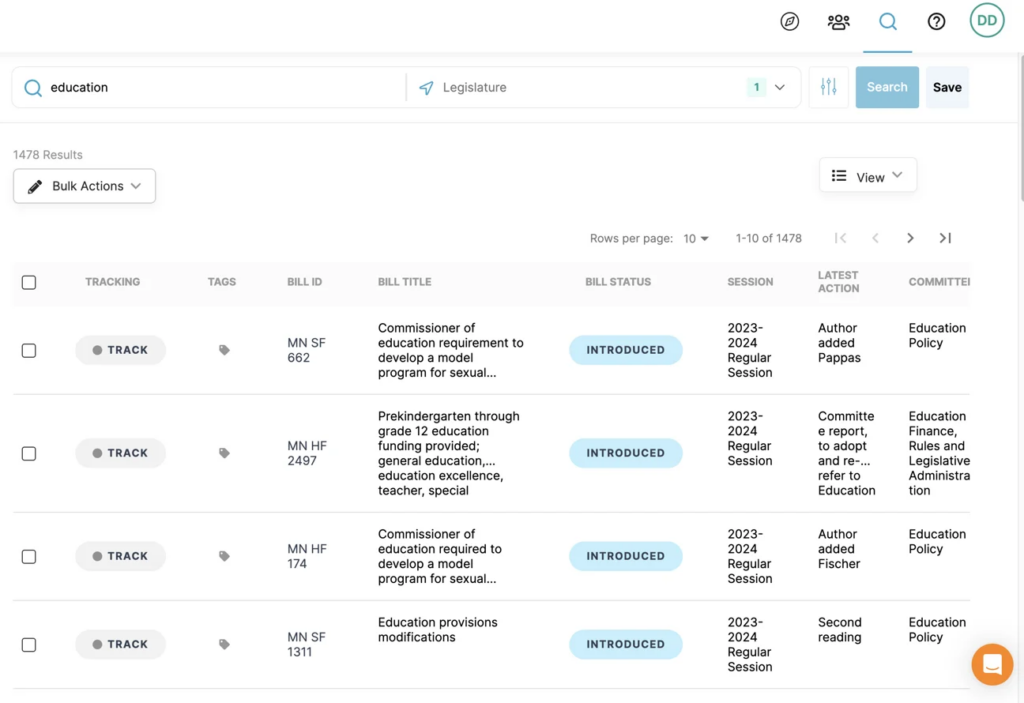
Track Many Bills at Once
Tracking a bill in Plural allows you to keep a running list of all of your bills of interest in a single place. You’ll receive email alerts whenever there’s an update on any of your tracked bills.
When viewing a list of bill search results in Table View in Plural, you can select multiple bills to track at once.
With this same functionality, you can also quickly un-track multiple bills at once. This can be especially handy when cleaning out your Workspace in preparation for the next session.
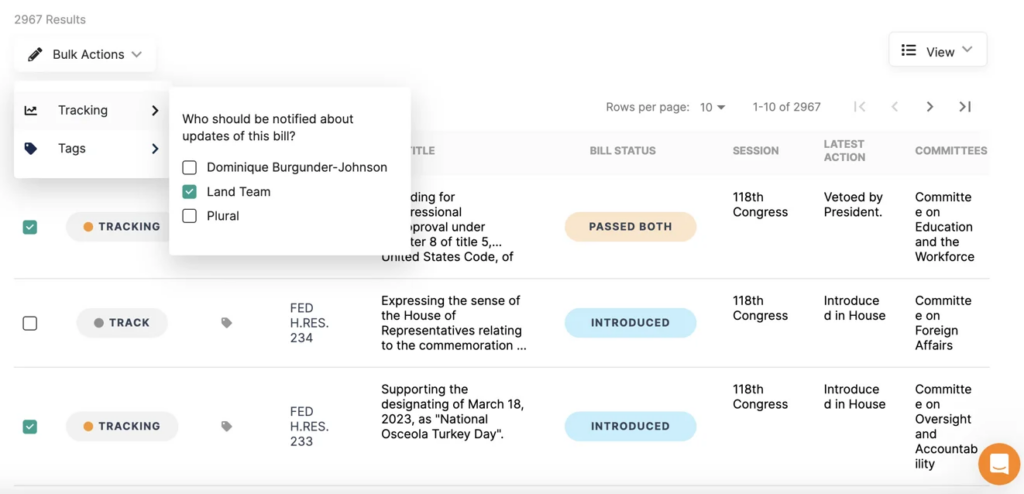
Organize Many Bills into Multiple Virtual Folders at Once
In Plural, “Tags” are like virtual folders that you can organize your bills of interest into.vFor example, you can use Tags to label bills based on high priority/low priority, support/opposed, or by issue area.
When viewing a list of bill search results in Table View, you can select multiple bills to assign a tag to at once.
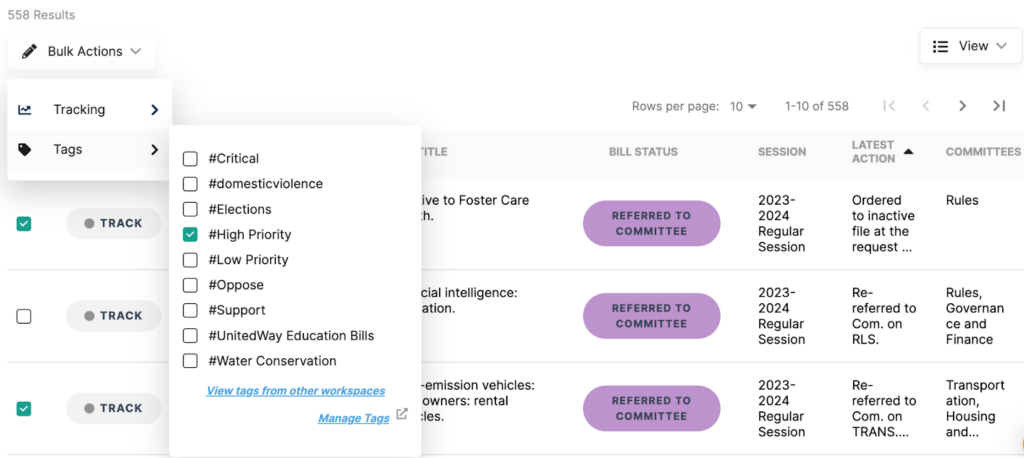
As with tracking, you can also un-tag multiple bills at once. Again, this can be especially handy when cleaning out your Workspace ahead of the next session.
BONUS: To keep a record of your tracked bills from past sessions, create a new tag with the session year and bulk-tag all of the bills before untracking them. This will create a new tag on the left sidebar with all of the bills you worked on in previous session(s), making it easy to access and reference them later.
Easily Share an Interactive List of Bills with External Audiences
Publishing a Tag allows you to quickly and easily share a group of bills with anyone, regardless of whether they have a Plural account. This can be especially useful when generating reports for external stakeholders, like clients and organization supporters.
Tags are fully customizable, and you can create as many as you’d like. Use tags to organize bills into categories such as “high priority/low priority,” “support/oppose,” or by topic area, like “education” or “housing.” After creating your tags, you can then assign one or more of the tags to your relevant bills. Then once you’ve published the tags, you can simply share the URL for the public tag in an email, website or text message.
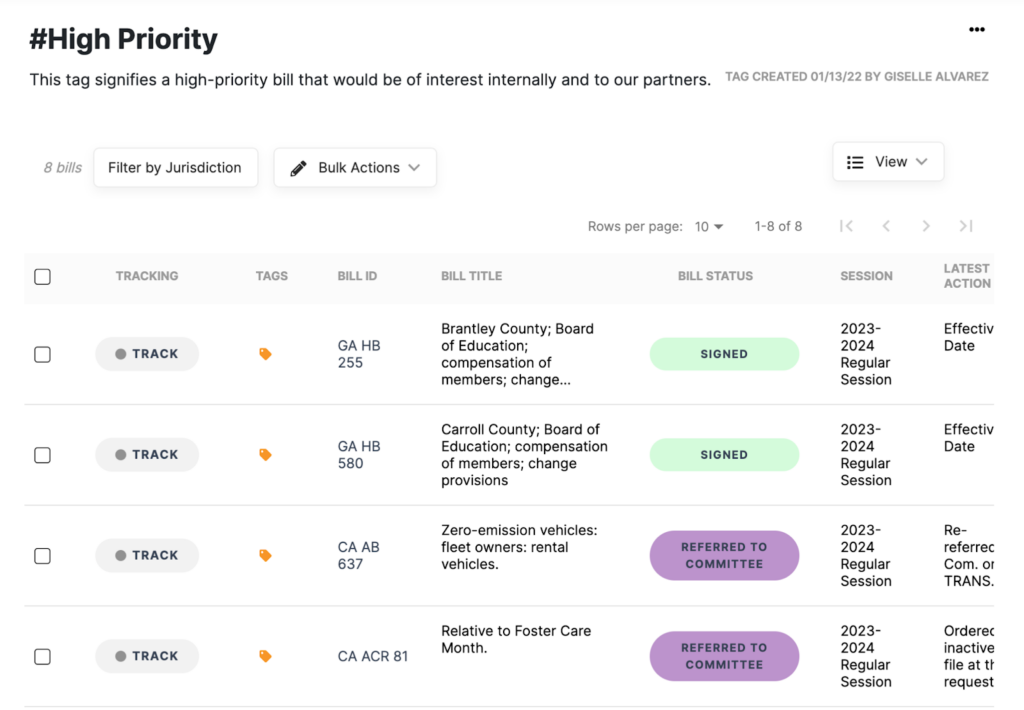
When someone visits the link for your public tag, they’ll be able to click on any of the listed bills to view the bill page. This page includes full text of the bill as well as the bill’s author/cosponsor, status, committee, actions and vote history.
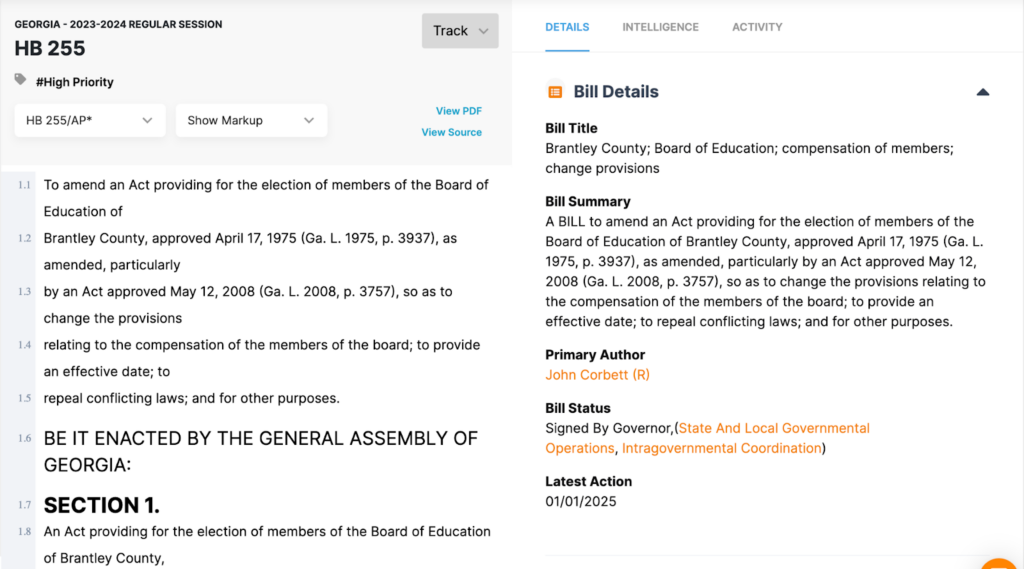
Find What You’re Looking For With Advanced Search Options
Using Plural’s filters and search preferences can be key to finding what matters to you. With Plural, you can narrow your search by legislature, session, bill status, and bill action.

Plus, you can use boolean operators such as quote marks, the “OR” operator and the “AND” operator to more quickly find what you’re looking for.

Identify Bills With the Highest Chance of Coming Up for a Vote
Thousands of bills are introduced each session, and sifting through them is labor intensive and time consuming. Plural’s AI-powered “Momentum Indicator” makes it easy to find what matters.
Bills with potential momentum will have a pulse icon next to the “Track” button and on their bill page.

You can also filter your search results to show only bills with potential momentum.

Find Companion and Other Related Bills All in One Place
Within the “INTELLIGENCE” tab on a bill page, you’ll see any bills that share text with the bill you’re currently viewing. This is a quick and easy way to find companion bills or an ominous package.
Plural will also indicate the degree of text similarity between the related bill and the bill you’re viewing. This will give you an even clearer sense of the relationship between two or more related bills.

Discover Similar Bills Across Multiple Jurisdictions
Plural’s Global Bill Search tool helps you quickly analyze bill text and find commonalities in bills across all jurisdictions.
Within the “INTELLIGENCE” tab, you’ll find the Global Bill Search tool. In the Global Bill Search tool, you can select the legislatures in which you’d like to search for bills similar to the one you’re currently viewing.

After completing your search, you’ll be shown a list of bills from your selected legislatures containing a high degree of similar text.

Keep Individual and Shared Work Separate
Plural allows you to have a personal organization, in addition to your shared organization. In your shared organization, you can collaborate with colleagues on work. Your personal organization is for your own work and is not shared with others.

Within your personal organization, you can track bills, create tags, and save searches that will only be visible to you.
When working within your shared organization, you can share actions with any of your shared workspaces, or your personal workspace. This helps you avoid navigating back and forth between the two organizations.

Get Started With Plural’s Advanced Features
With Plural’s advanced features, it’s easier than ever to shape the future of public policy. Harness the power of Plural’s intuitive, AI-powered legislative tracking and stakeholder collaboration tool and get started today.

